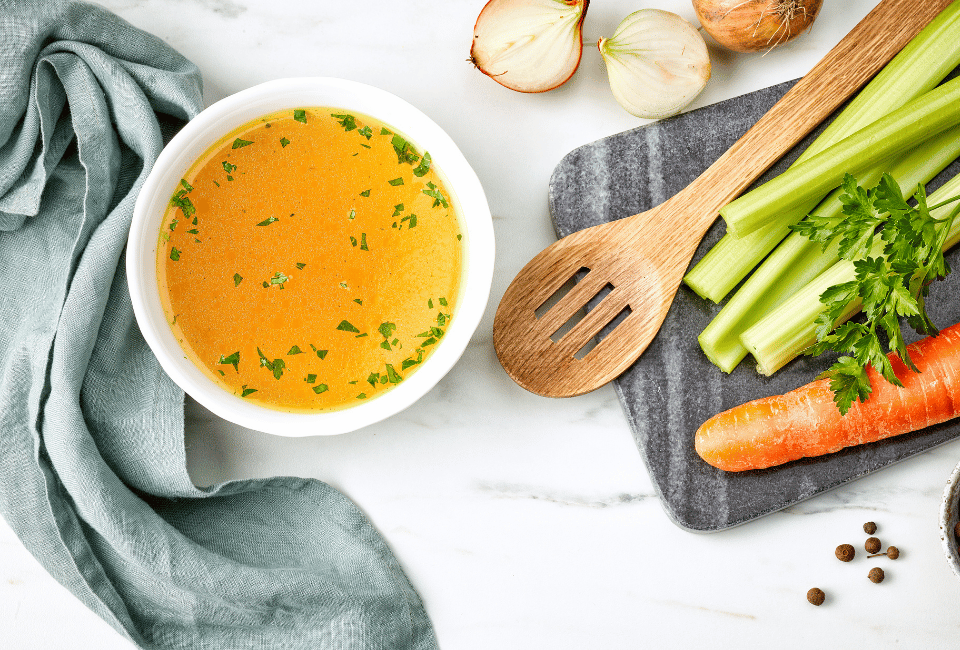
The benefits of bone broth for baby are gaining attention as more parents look for natural ways to nourish their little ones. From the very first days, we focus on providing the right nutrition to ensure they grow strong, healthy, and develop properly. Incorporating bone broth into their meals might be a great way to ensure they’re getting the nourishment they need.
What is Bone Broth?
Bone broth is a nutrient-rich liquid made by simmering animal bones, connective tissues, vegetables, and herbs for an extended period. It’s packed with minerals like calcium, magnesium, and phosphorus, which are essential for your baby’s growing bones and teeth. In addition to the minerals, bone broth also contains collagen, which is great for your baby’s skin, joints, and digestive health.
When you start adding solid foods to your baby’s diet, bone broth can be a soothing, nutritious addition. It’s gentle on their stomach and provides a liquid base for purees or mashed foods.
Benefits of Bone Broth for Baby:
Nutrient-Dense: Bone broth is packed with essential nutrients like calcium, magnesium, phosphorus, and potassium, which are crucial for your baby’s bone and muscle development. However, bone broth isn’t the only nutrient-rich food you can add to your baby’s diet to support their growth. For more ideas on boosting your baby’s iron levels, check out my article on iron-rich foods for babies for a variety of options to keep your little one healthy and strong.
Easy to Digest: The gentle cooking process breaks down the proteins and collagen in the bones, making it easy for your baby’s tummy to digest.
Immune Support: Bone broth for baby contains amino acids like glycine and proline, which can help support your baby’s immune system.
Hydration: Bone broth is a great way to keep your baby hydrated, especially during hot weather or when they’re feeling under the weather
I started incorporating it into my little one’s diet, and the results have been amazing. It’s easier than you might think, and I’ll walk you through the steps below.
How to Make Bone Broth for Your Baby
Making bone broth at home is simple and allows you to control the ingredients and quality. Here’s a basic recipe to get you started:
Ingredients:
- Water to cover the bones
- 1 pound of organic chicken or beef bones
- 2 carrots, chopped
- 2 celery stalks, chopped
- 1 onion, chopped
- 2 cloves of garlic, minced
- A handful of fresh parsley
Instructions:
Choose Your Bones: You can use chicken, beef, or turkey bones. Organic, grass-fed options are the best since they tend to have fewer chemicals and additives.
Simmer for Hours: Place the bones in a large pot and cover them with water. Add the chopped vegetables and garlic to the pot. Bring the water to a boil, then reduce the heat and let it simmer for 12-24 hours. The longer it simmers, the more nutrients are extracted, which will further increase the benefits of bone broth for your baby. Skim off any foam that forms on the surface. After simmering, strain the broth through a fine mesh sieve to remove the solids.
Strain and Cool: Once the broth is ready, strain it to remove any solids. Let it cool, and you’ll have a delicious, nutrient-packed bone broth.
Store and Use: You can store the bone broth in the refrigerator for up to a week or freeze it in ice cube trays for easy portioning. Use it as a base for purees, mix it into soups, or offer it as a drink!
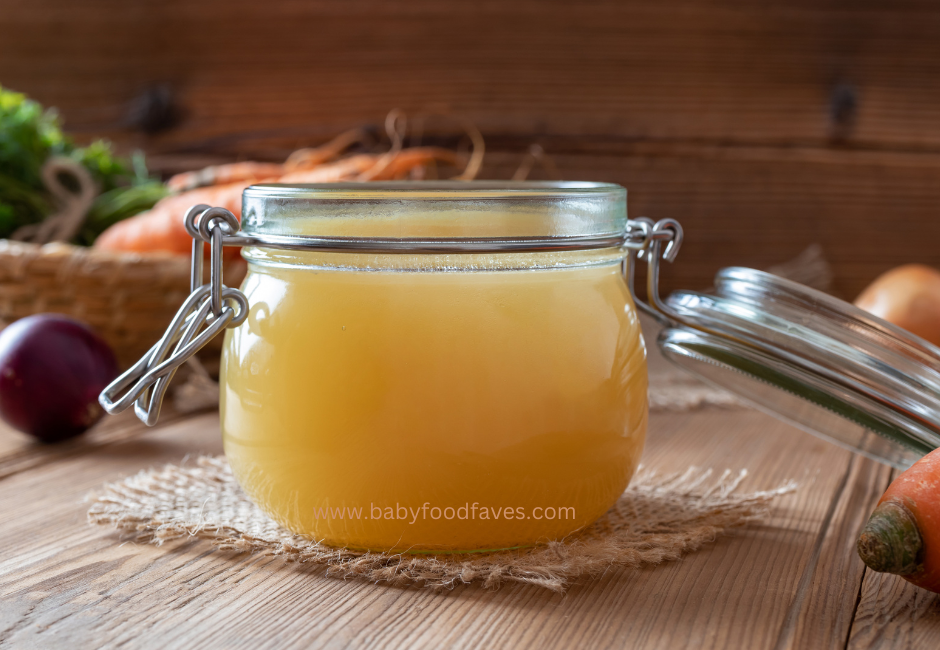
Tips for Introducing Bone Broth to Your Baby’s Diet:
Start Small: Begin by offering a few teaspoons of bone broth mixed with your baby’s regular purees or cereals.
Gradual Increase: Gradually increase the amount of bone broth as your baby gets used to the new flavor and texture. You’ll soon see the benefits of bone broth for babies as it becomes a part of their regular meals.
Mix with Favorite Foods: Mix bone broth with your baby’s favorite foods to make it more appealing.
Use in Cooking: Incorporate bone broth for babies into soups, stews, and sauces for added nutrition.
When to Introduce Bone Broth to Your Baby
Many parents suggest offering bone broth to babies as early as 6 months, after your baby has started eating solid foods. At this stage, bone broth can be a great addition to meals as it is easy to digest and full of nutrients.
If your baby is doing well with purees or soft foods, you can start mixing bone broth into their meals. I started by offering it as a simple drink to my baby in a small cup, and later, I added it to their pureed veggies and even rice dishes. If you’re looking for more ideas on introducing your baby to new flavors, check out my articles on first veggies for babies and first fruits for babies for some easy and nutritious options!
Remember, always talk to your pediatrician before introducing new foods to your baby. Every baby is different, and it’s essential to make sure they’re ready for new textures and flavors.
Things to Keep in Mind When Giving Bone Broth to Babies
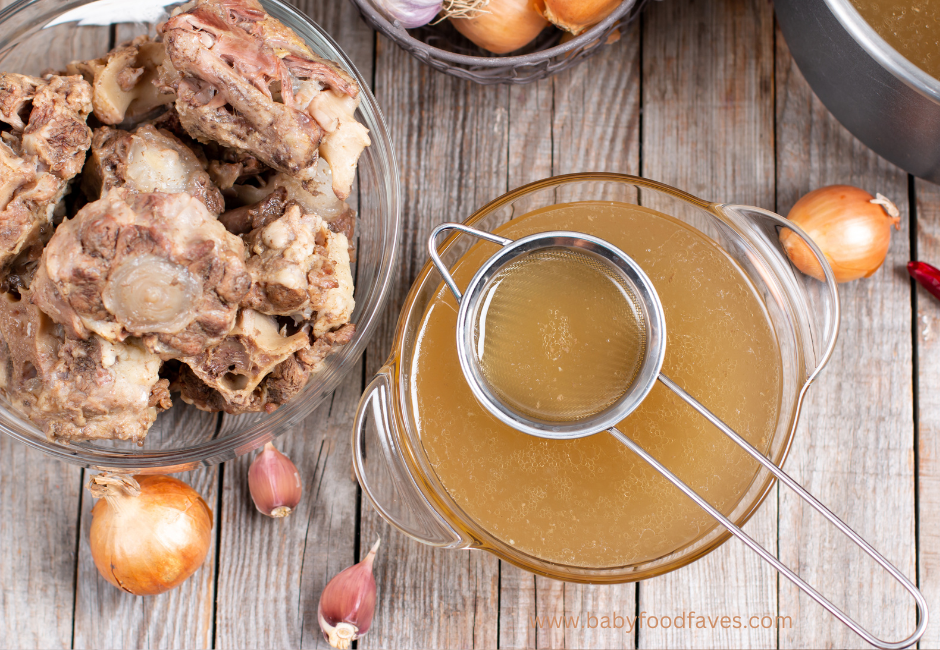
- Salt Content: Be sure not to add salt or seasonings to the bone broth for your baby. Too much salt is not recommended for babies under one year old. Keep the broth plain to ensure it’s safe for your little one.
- Allergies: While bone broth is a great option for most babies, it’s always important to monitor for any allergic reactions, especially if you’re using beef or other less common animal products.
- Storage: Always make sure you store the bone broth for babies correctly to avoid bacterial growth. If you’re freezing it, make sure to use BPA-free containers or ice cube trays.
Have you tried bone broth for your baby? What was your experience like? I’d love to hear your stories and tips in the comments below. Let’s create a supportive community where we can share and learn from each other!
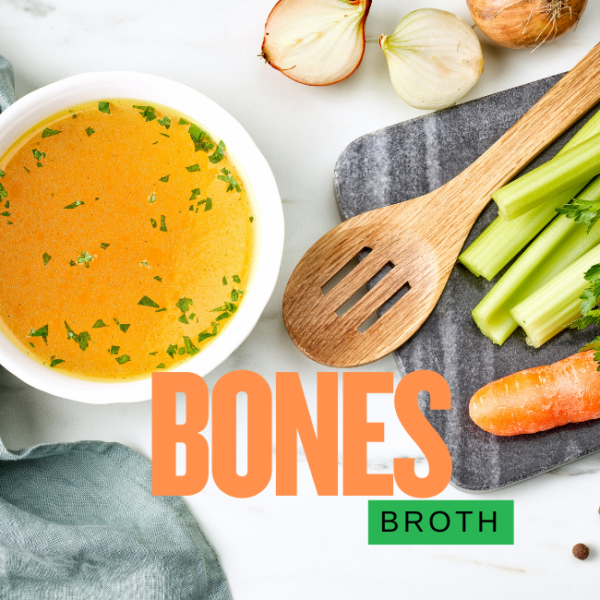
Bones Broth for Babies
Ingredients
- Water to cover the bones
- 1 pound of organic chicken or beef bones
- 2 carrots chopped
- 2 celery stalks chopped
- 1 onion chopped
- 2 cloves of garlic minced
- A handful of fresh parsley
Instructions
- Choose Your Bones: You can use chicken, beef, or turkey bones. Organic, grass-fed options are the best since they tend to have fewer chemicals and additives.
- Simmer for Hours: Place the bones in a large pot and cover them with water. Add the chopped vegetables and garlic to the pot. Bring the water to a boil, then reduce the heat and let it simmer for 12-24 hours. The longer it simmers, the more nutrients are extracted, which will further increase the benefits of bone broth for babies. Skim off any foam that forms on the surface. After simmering, strain the broth through a fine mesh sieve to remove the solids.
- Strain and Cool: Once the broth is ready, strain it to remove any solids. Let it cool, and you’ll have a delicious, nutrient-packed bone broth.
- Store and Use: You can store the bone broth in the refrigerator for up to a week or freeze it in ice cube trays for easy portioning. Use it as a base for purees, mix it into soups, or offer it as a drink!
FAQ: Bone Broth for Baby
Q1: Can I give my baby store-bought bone broth?
A: While store-bought bone broth is an option, homemade bone broth is the best because you can control the ingredients. Make sure to read labels carefully if you opt for store-bought to avoid added salt or preservatives.
Q2: At what age can I give bone broth to my baby?
A: Most parents introduce bone broth around 6 months, after their baby has started eating solid foods. Always check with your pediatrician before introducing it.
Q3: Is bone broth safe for babies with allergies?
A: Bone broth is generally safe, but if your baby has any food allergies, especially to beef or chicken, consult your pediatrician first.
Q4. Can bone broth help with my baby’s immune system?
Yes! Bone broth contains nutrients like zinc and magnesium, which can support a healthy immune system.
Q5. What if my baby doesn’t like bone broth?
Don’t worry! Every baby is different. Try mixing it with other foods or offering it in different ways until you find what works.



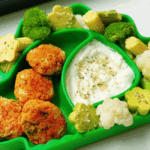









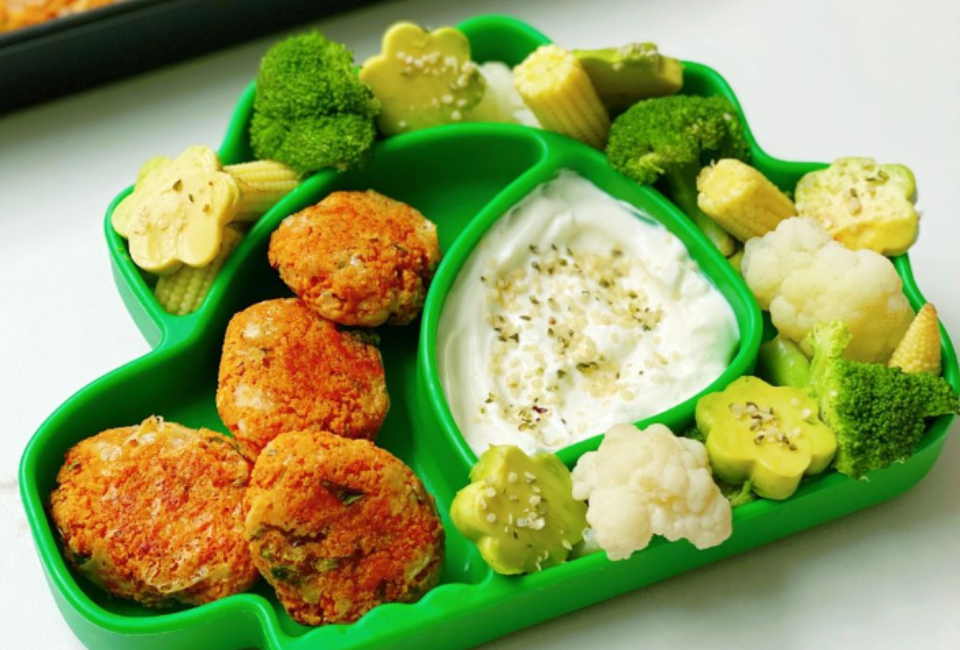
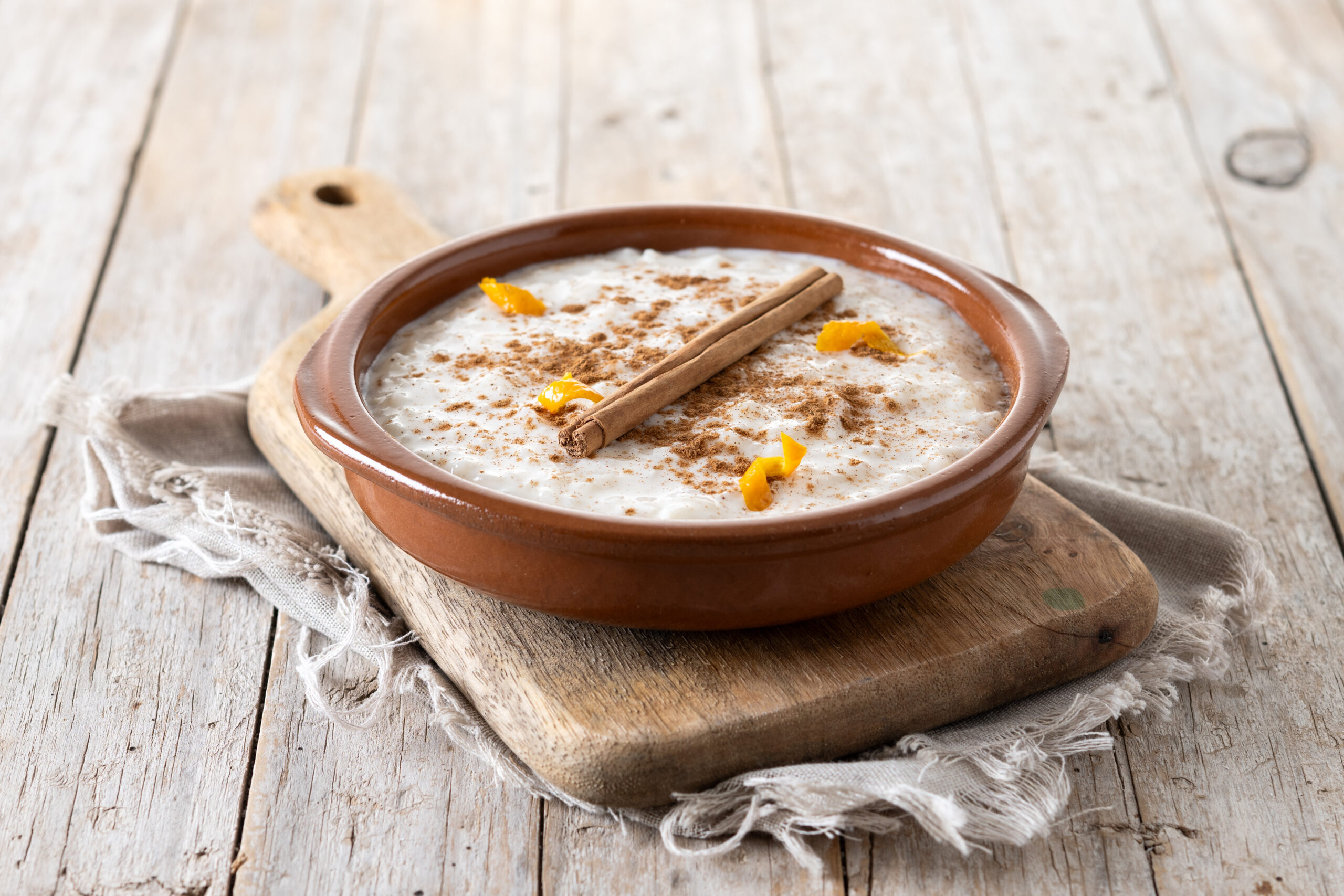

Leave a Reply